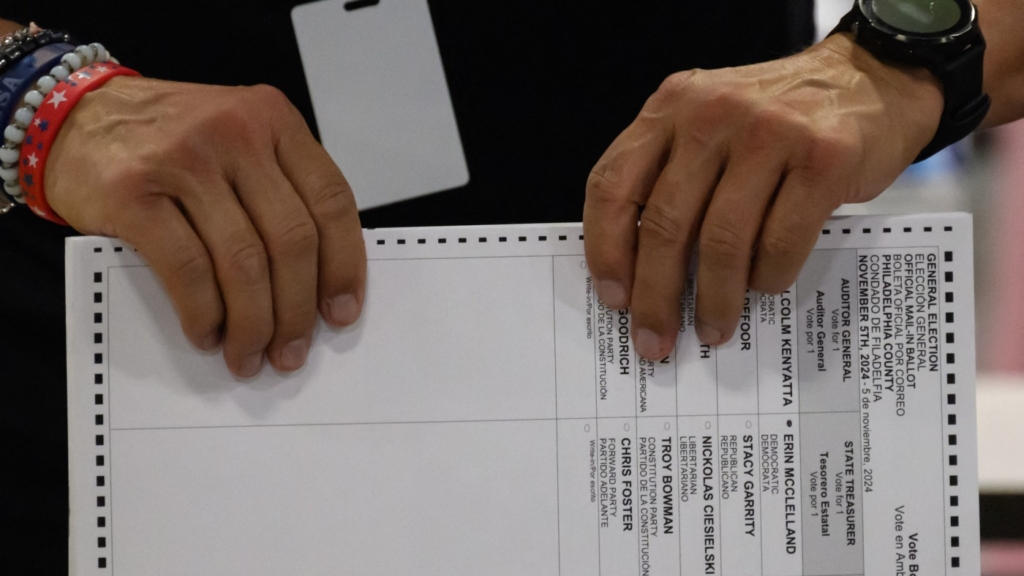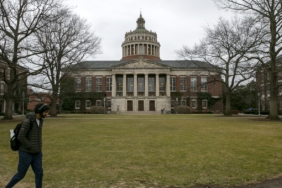Bu içerikte, 2024 seçimlerinde Donald Trump’ın zaferinin, politik çekişmenin her iki tarafında da hile iddialarını körüklediği belirtiliyor. Sağ kanattaki destekçiler, sonucun 2020 seçimlerinin kendisinden çalındığı yönündeki çürütülmüş iddialarını haklı çıkardığını iddia ediyor. Daha küçük bir ölçüde, soldakiler ise bu yılın sonuçlarına şüpheyle yaklaşan kendi asılsız iddialarını dolaşıma sokuyor. Seçim inkar hareketi, Trump’ın ilham verdiği ve geçen dört yılda 2020’nin kandırıldığı yönündeki yanlış iddialar etrafında bir altyapı ve topluluk oluşturduğunu gösteriyor. Bu yıl benzer endişeleri yükseltmek için büyük yatırımlar yaptılar, ancak bu iddiaların, sonuçlar açıklandıkça kaybolduğunu gördüler. Seçim Günü’nün ardından ortaya çıkan hikaye, hareketin tercih ettikleri aday kazandıktan sonra bile oy verme sürecine şüphe eklemeye devam ettiğini gösteriyor. Yeni iddialar, 2020 ve 2024’te popüler oy toplamlarını karşılaştırmak üzerine odaklanıyor. Dört yıl önce, Joe Biden yaklaşık 81 milyon oy almıştı; Cuma öğleden sonrasına kadar Harris’ın toplamı Associated Press’e göre 69 milyondu. Seçim inkarcılar, farkı “eksik” Demokrat oyları olarak çerçeveledi ve 2020’de hile şüphelerini doğrulayan bazı teorileri tekrar dolaşıma soktu. Trump’ın erken aşamada önde olduğu eyaletlerde daha fazla oy sayıldıkça Biden’a geçilmesine neden olan gecenin geç saatlerindeki oy “dökülmeleri” hakkında çürütülmüş teoriler hakkında bilgi veriyor. Biden’ın ve Harris’in toplamları arasındaki farkın nedenleri hakkında bazı açıklayıcı nedenler de sunuluyor. Bu yazıda, hala oyların sayıldığı ve en kalabalık eyalet olan California’nın da dahil olduğu belirtiliyor. Seçim sonuçlarının nasıl hesaplandığı konusunda bilgi sahibi olmayanların komplo teorilerine ve yanlış bilgilere daha yatkın olduğu belirtiliyor. Oyların onaylanma süreci eyaletten eyalete değişiyor ve genellikle haftalar alabiliyor. 2024 seçimleri için de denetimler ve testler devam ediyor. Geçmiş seçimlerin aksine, 2024 seçimlerinde Demokratlar ve Cumhuriyetçiler arasında farklı yönlere gidilmesi ve seçmenlerin farklı davranışlar sergilemesinin normal olduğu belirtiliyor. Ayrıca, Trump’ın tüm ülkede kazançlar elde ettiği ve Harris’in muhtemelen Biden’ın toplam oy sayısına yetişemeyeceği ifade ediliyor. Kısacası, makale, seçim süreci hakkında doğru bilgiye dayanmayan iddiaların ve komplo teorilerinin yayılmasına dikkat çekiyor. This content discusses the viral spread of a post that has been viewed more than 4 million times on a certain platform, along with a similar post by YouTuber Benny Johnson that garnered over 22 million views. It also highlights the impact of visual content, such as a bar chart shared by the far-right website ZeroHedge, which received 20 million views. The narrative surrounding discrepancies in vote counts between the 2020 and 2024 elections, fueled by influential figures like Cleta Mitchell, is emphasized. The content also delves into the circulation of theories about missing Democratic votes and allegations of fraud, particularly among left-leaning social media users. Additionally, it touches on the role of individuals who profit from discussing election fraud and the narrative-building strategies employed by certain political figures. The piece is accompanied by images depicting election-related activities, such as ballot counting in the Maricopa County Tabulation and Election Center. Bu içerikte, 2020 seçimlerinden sonra sol eğilimli hesapların hile iddialarına dair yapılan paylaşımların etkisinin sağ eğilimli hesapların “Seçimi Çalmayı Durdur” kampanyasının etkisi kadar büyük olmadığı belirtilmektedir. Araştırmacılara göre, sol tarafta bu tür iddiaları destekleyecek çevrimiçi altyapı ve etkili paylaşımların eksikliği bu durumun sebebi olabilir. Ayrıca, Demokrat liderlerin bu tür iddiaları teşvik etmemesinin de etkili olduğu belirtilmektedir. Hile iddialarının yeniden gündeme gelmesinin seçimlerin bütünlüğüne yönelik sürekli saldırılar sonucunda seçimlere duyulan güvenin nasıl erozyona uğradığını gösterdiği ifade edilmektedir. Sonuç olarak, Amerikalıların seçim sürecine ve seçimleri yürütenlere olan güvenlerini, adaylarının kazanıp kaybetmesine duyulan hayal kırıklığından ayırmaları gerektiği vurgulanmaktadır. Bu içerik, içerik açıklaması oluşturma konusunda yapay zeka asistanlarının nasıl kullanılabileceğini ele almaktadır. Yapay zeka asistanları, içerik oluşturuculara hızlı ve etkili bir şekilde içerik açıklamaları oluşturmalarında yardımcı olabilir. Bu yazıda, yapay zeka asistanlarının avantajları ve nasıl kullanılabileceği detaylı bir şekilde açıklanmaktadır. Ayrıca, içerik açıklamasının önemi ve nasıl oluşturulması gerektiği konuları da ele alınmaktadır. Bu içerik, içerik oluşturucuların işlerini kolaylaştırmak ve daha etkili içerikler oluşturmalarına yardımcı olmak amacıyla hazırlanmıştır.
Kaynak: www.npr.org














Yorumlar kapalı.